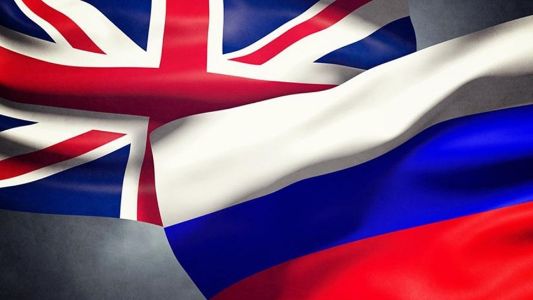
-
Published: 29 October 2022

In the latest development of events in the Russian-Ukrainian war , the Russian military accused Ukraine and Britain of carrying out a March attack targeting its Black Sea Fleet in the Crimea peninsula annexed by Moscow in 2014, causing "minor damage" to one of the ships.
"The preparation for this terrorist act and the training of military personnel at the 73rd Ukrainian Center for special naval operations were carried out by British specialists based in Ochakov in the Mykolaiv region of Ukraine," the Russian Defense Ministry wrote on Telegram, adding that these ships were involved in protecting Ukrainian grain export convoys, according to Moscow.
Earlier today, the authorities of the Crimean Peninsula announced that all drones that attacked the port of Sevastopol were successfully repelled and shot down.
Referring to the attack , Sevastopol governor Mikhail Razvozhaev said on his Telegram account: "today since 04:40 in the morning and for several hours, various air defense systems in Sevastopol repelled attacks with parades, all parades were shot down.
The authorities in the Crimea announced last Thursday that the Balaklava power plant in Sevastopol was targeted by a plane attack
In addition to the previous accusation , the Russian military accused London of involvement in the explosions that caused leaks in September from the Nord Stream 1 and 2 gas pipelines in the Baltic Sea built to transport Russian gas to Europe.
"Representatives of a unit of the British Navy took part in the planning, supply and execution of the terrorist act in the Baltic Sea on September 26 to sabotage the work of the Nord Stream 1 and 2 gas pipelines,"the Russian Defense Ministry wrote on Telegram.
Russia, which has extended the "Nord Stream" pipelines with foreign partners, says that the damage was caused by sabotage.
The Swedish and Danish authorities investigated 4 leaks in the pipelines "Nord Stream 1" and"Nord Stream 2".
Denmark's findings appeared to be similar to those of Swedish prosecutors, who earlier said explosions were most likely caused by leaks from the two gas lines.
Supplies via the line "Nord Stream 1 "had already stopped before the leaks were discovered, while" Nord Stream 2 " had not started commercial deliveries.
